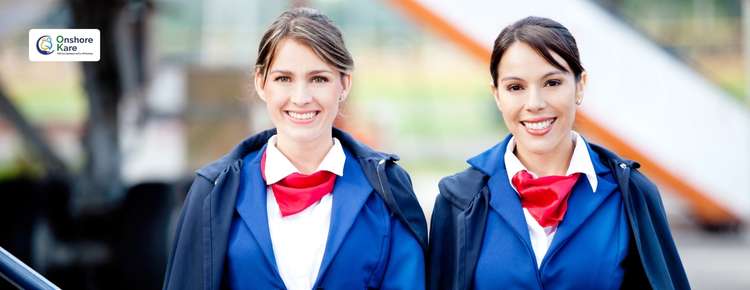
Flight Attendants Tips For Summer Travel
With the warmer season upon us, We’ve compiled a set of invaluable flight attendants tips for summer travel recommended by flight attendants with major US Airlines, to make your summer flying experience as seamless and enjoyable as possible.
As the sun-drenched days of summer beckon they find themselves at the heart of a bustling and dynamic period in the aviation industry. If anyone knows how to travel better no matter the season or time of year, it’s the flight attendants who are always on the move.
With warmer weather and an increase in passenger numbers, this summer season brings both excitement and unique challenges. Navigating through crowded airports, adapting to changing weather conditions, and ensuring passenger comfort requires specific set of skills and strategies.
We will explore essential tips and insights from flight attendants who recommend how to excel during the summer travel rush. These tips will help you make the most of the busy yet rewarding summer months.
If you are planning to travel to an international destination, don’t forget about travel insurance.
Summer Travel Tips Recommended By Flight Attendants
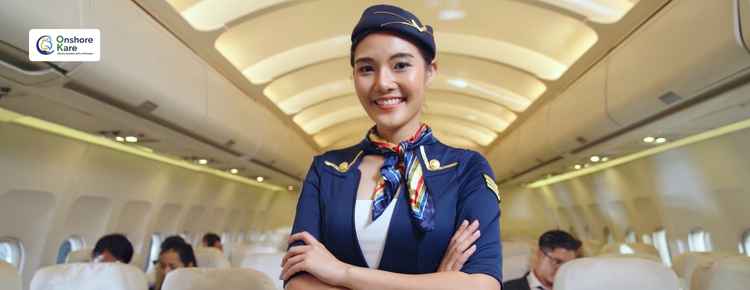
Here are some top tips for summer travel:
- Travel early in the day: Flights early in the day are generally more reliable and less likely to be impacted by delays or cancellations later in the day
- Book off-peak travel days: Traveling on less popular days of the week, such as Tuesdays or Wednesdays, can help avoid crowds and long lines at the airport
- Bring a carry-on with necessary items: Always bring a carry-on bag with essential items such as car keys, medicine, electronics, and anything else that cannot be easily replaced
- Leave buffer time: Avoid missing your flight or other important events by leaving buffer time in your schedule
- Be kind to flight crew: Being kind and respectful to the flight crew can go a long way in making your travel experience more pleasant
In addition to these tips, it’s important to be patient and prepared for unexpected delays or cancellations. Downloading movies or bringing toys for kids can help pass the time during long travel days. Finally, it’s always a good idea to plan ahead and be prepared for any situation that may arise during travel.
You can also check for important information related to travel and insurance if you have a membership for AAA Member or a Costco Member.
Flight Attendants Tips For Summer Travel -Travel Early In The Day
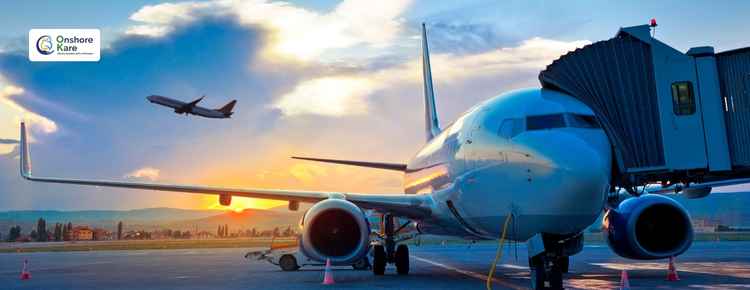
Delays are hard to avoid but the best bet is traveling early in the day.
Flight attendant tips: “THE EARLIER ON IN THE DAY THE LESS DELAYS YOU ENCOUNTER”
- Traveling early in the day is a great tip for summer. According to the flight attendant, the best time of day to travel is the early morning
- Traveling first thing in the morning is the best way to avoid rippling cancellations and flight delays throughout the day as there are just fewer issues
- The airport and airline system resets itself overnight so are unlikely to face the aftershocks of the previous day
- The only downside is you need to wake up very early if you have to catch the early morning flight
Finally, it’s important to be prepared for unexpected delays or cancellations and to leave buffer time in your schedule.
Flight Attendants Tips For Summer Travel – Book Off-Peak Travel Days
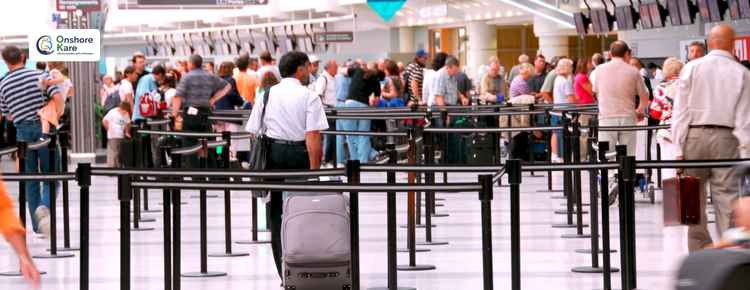
Air travel is going to be busy, with the majority of passengers traveling on Friday evening or Monday morning. Booking off-peak travel days is a great way to save money and avoid crowds during summer travel.
- The best days to book flights are Tuesdays, Wednesdays, and Saturdays
- These days are often much cheaper to fly than peak travel days
- In addition, traveling during the shoulder season:
- from mid-April through early June and late August through mid-October, can also save you money
- It’s important to note that:
- there is no single best day or time to book a flight, and
- cheap flight prices are available 24/7
- It’s recommended to pick a destination and find the cheapest days to fly to that destination
Finally, it’s important to be aware of the busiest travel days throughout the week:
Which are Thursdays, Fridays, Sundays, and Mondays, and to avoid flying on these days if possible.
Flight Attendants Tips For Summer Travel – Book The First Flight Of The Day
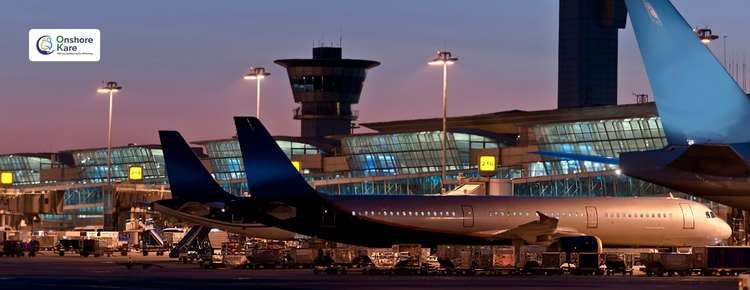
Booking the first flight of the day versus waiting until late afternoon is a great tip for summer travel. According to the flight attendant’s tips, the first flight out is the most reliable and less likely to be impacted by delays or cancellations later in the day.
The crew will be fresh from a good night’s sleep, and mentally unencumbered by a hard day’s work, you face fewer delays and less weather.
In addition, people who get the first plane in the morning can usually expect a smoother trip, friendlier staff, a cleaner plane, and often a cheaper ticket, typically the first flight is more affordable than other flights.
Depending on your destination, booking a morning flight may also save you money.
However, it’s important to note that booking the first flight of the day may not always be a good idea.
It’s recommended to check the second bank of flights, which may offer a lower risk option, provided the planes and crews that will operate with such flights are part of the first bank of flights out of hub airports.
Finally, it’s important to be prepared for unexpected delays or cancellations and to have plenty of resources to sustain and entertain you in anticipation of a long travel day.
Flight Attendants Tips For Summer Travel – Avoid Tight Connections
The flight attendant says they see travelers running from plane to plane through terminals, giving them a minimum window of connecting time.
They recommend avoiding tight connections, It may be the cheapest travel option with minimal transit time. but it is worth exploring other airline options as well.
It is important to ensure a smooth summer travel experience.
Here are some tips and information on how to avoid tight connections:
- Don’t make tight connections: When booking a connecting flight, make sure not to cut it too close between flights. Leaving only a short amount of time between flights can increase the risk of missing your connection
- Know your airport’s minimum time for connecting flights: Different airports have different minimum connection times. Knowing your airport’s minimum connection time can help you plan your travel itinerary
- Choose an aisle seat near the front: If you know you’re facing a tight connection and you’ve booked your flight in advance, reserve an aisle seat toward the front of the plane. This can help you get off the plane faster and make it to your connecting flight on time
- Take carry-on only: Avoid unnecessary holdups by taking carry-on only. This can help you move more quickly through the airport and make it to your connecting flight on time
- Consider nonstop or direct flights: A nonstop or direct flight is still the best way to avoid connection problems. Figure that a connecting itinerary adds a minimum of two hours to your total trip time, and more likely three, so driving up to 200 miles to/from a different airport to catch a nonstop is often a good idea
- Contact the airline: If you think you’ve been sold a flight with an impossibly short layover, consider contacting the airline to change your flight for better peace of mind
NOTE:
It’s important to note that even with these tips, booking a connecting flight with less than an hour to spare still comes with risks Therefore, it’s recommended to leave plenty of buffer time in your schedule to avoid missing your flight or other important events.
If you are flying long haul (internationally) Especially if you are traveling to Europe from the U.S. you must double your connection time (the time you consider as normal connection time) because these flights leave in the evening and weather builds up leading to delays.
Flight Attendants Tips For Summer Travel – Pack Snacks
Either you may have a perfect experience if all your food and needs are met but in case things get awry during your journey, you need to be prepared.
There are chances flight might take off late in such a case relying on the flight for your breakfast, lunch or dinner can lead to disappointment to avoid this you can bring granola bars and different packable foods or get food at the airport
You can always Pack Snacks relying on flights for your meals can be disappointing at times and bringing something along helps to avoid such situations and relying on the airlines in times of delays.
Flight Attendants Tips For Summer Travel – Dress For The Journey, Not The Destination
When it comes to dressing for a journey, there are a few things to keep in mind to ensure comfort and practicality. Apart from being comfortable, you need to be prepared for any eventualities in case your flight ends up getting canceled or delayed overnight and you may have to disembark and reboard
Here are some insights from the search results:
- Comfort is key: Generally, soft, stretchy, and loose-fitting clothing is best for travel, as it’ll keep you comfy and won’t feel restrictive on long flights or car rides. Avoid tight-fitting clothes, high heels, and anything that may cause discomfort or restrict movement
- Layer up: Dressing in layers is a great way to adapt to changing temperatures and environments during your journey. Bring a light jacket or cardigan that you can easily take on and off as needed
- Choose practical items: Opt for clothing with pockets, as they can be useful for storing small items such as your ID, phone, or boarding pass. Wear comfortable shoes that are easy to slip on and off during security checks
Ultimately, the key to dressing for a journey is to prioritize comfort and practicality while still adding your personal touch. By choosing soft, stretchy, and loose-fitting clothing, layering up, and opting for practical items, you can ensure a comfortable and enjoyable travel experience.
Download All The Apps – Airline, Airport, And Flight Tracker

The best bet would be to download the apps for Airline, Airport, and flight tracker the good reason being if there is no app you are flying blind.
With the app installed on your cell phone, it updates you:
- When you are boarding
- If you are running late
- Is the flight still there
- If the flight got delayed
You have information on
- Seat changes
- Gate changes
- Info on your boarding passes
- Any other upgrades
You can also download the apps for your departure and destination airport as well as apps that track flight arrivals.
Always check your airline and airport apps for updates to avoid sitting at the gate or on a grounded airplane wondering what’s going on around you.
At times these apps update even before the airport or airplane overhead announcements. You can see delays coming, it avoids you from sitting at the gate or on a grounded airplane wondering what’s going on around
By downloading these apps, you will have access to real-time flight tracking, flight status updates, airport information, and more. These apps can help you in staying informed and connected about your flights and make your travel experience smoother.
Read The Fine Print Of Your Airline Booking
When booking a flight, it’s important to read the fine print of your airline booking to avoid any surprises or misunderstandings.
This is especially important if you have booked with a third-party booking agent, as you could be traveling with multiple different airlines and not even realize it.
Every airline has a different policy, Familiarize yourself with what your chosen airline offers or does not offer in case things don’t go as planned
Here are some things to look out for in the fine print:
- Compensation for delays and cancellations: Check the airline’s policy on compensation for delays and cancellations. Generally, airlines are not required to provide compensation for extraordinary events over which they have no control
- Don’t forget to get CFAR Coverage in case you need to cancel your trip, it can cover the financial impact of your non-refundable trip cost
- Baggage fees: Check the airline’s policy on baggage fees, including the number of bags allowed, weight limits, and fees for checked and carry-on bags
- Flight change and cancellation fees: Check the airline’s policy on flight change and cancellation fees, including the cost and conditions for changing or canceling your flight
- Seat selection fees: Check the airline’s policy on seat selection fees, including the cost and conditions for selecting your seat
- Boarding and check-in procedures: Check the airline’s policy on boarding and check-in procedures, including the time frame for check-in, boarding procedures, and any required documentation
- Flight schedule changes: Check the airline’s policy on flight schedule changes, including the conditions for changing your flight schedule and any associated fees
- Overbooking: Check the airline’s policy on overbooking, including the compensation you may be entitled to if you are involuntarily bumped from your flight
By reading the fine print of your airline booking, you can avoid any surprises or misunderstandings and ensure a smoother travel experience.
Arrive At The Gate Early – Tip From Former Flight Attendant
When it comes to arriving at the gate early, the recommended time varies depending on the airline and the type of flight.
Usually, boarding starts 30 minutes prior and the door gets closed within 10 to 15 minutes before departure. Keep an eye on the flight time and boarding announcements from the time you arrive at the airport.
Here are some insights:
- Domestic flights: For domestic flights, it’s generally suggested to arrive at the gate 15 minutes before departure, however, it’s important to note that this can vary by airline and airport, so it’s always a good idea to double-check the specific guidelines provided by your airline
- Know more about how savvy travelers save money using Skiplagged to get cheap flights
- International flights: For international flights, the recommended time to be at the gate is typically between 30 and 60 minutes before departure
- If you are traveling internationally don’t forget to get travel insurance to safeguard yourself against any unwanted financial losses
- Again, it’s essential to check with your airline for their specific requirements and recommendations
- Consider additional factors: Factors such as the airport’s check-in window and security procedures can also impact when you can actually check in, check bags, and go through security. Some airports may have shorter check-in windows, so it’s important to research and be aware of these details
- Elite frequent flyers and expedited security programs: Being an elite frequent flyer or participating in expedited security programs can help decrease the amount of time you need to show up in advance. These programs may provide access to faster security lanes, reducing the time needed for check-in and security procedures
- Personal preferences and circumstances: Ultimately, the decision of how early to arrive at the gate is up to you. Some travelers prefer to arrive early to allow for any unexpected issues or to have time to relax at the airport, while others prefer to arrive closer to the recommended time
Consider your personal circumstances, such as whether you have checked luggage or require special assistance, when determining how early to arrive.
NOTE:
It’s important to note that these are general guidelines, and it’s always recommended to check with your specific airline for their recommended arrival time at the gate. Additionally, factors such as traffic, airport congestion, and security wait times can also influence how early you should plan to arrive.
How Early Should Travelers Get To The Airport
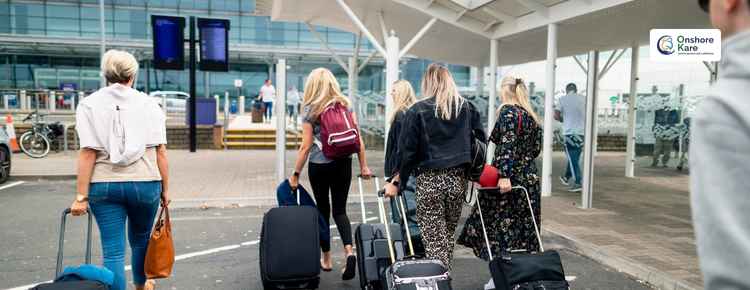
When it comes to how early travelers should get to the airport, it depends on the airline and the destination. Here are some general guidelines:
- Delta Airlines: Delta Airlines suggests arriving at the airport at least two hours prior to departure for domestic flights
- United Airlines: For most United- and United Express-operated flights within the U.S., travelers with checked baggage must check in at least 45 minutes before departure
- American Airlines: American Airlines recommends arriving at the airport at least 45 minutes prior to departure for flights within the U.S
- Flight Crew: A former flight attendant says traveling first thing in the morning is the best way to avoid rippling cancellations and delays throughout the day
It’s important to note that these are general guidelines, and it’s recommended to check with your airline for specific check-in and arrival times. In addition, it’s always a good idea to leave buffer time in your schedule to avoid missing your flight or other important events.
Avoid Missing Your Best Friend’s Wedding And Leave Buffer Time
To avoid missing your best friend’s wedding or a cruise departure or any other important event,
- It’s crucial to leave buffer time when planning your travel.
- Go a day early taking out all the unpredictability.
Often travelers try to make the most of their time by cutting it really close.
- Adding so much stress to their travel says a flight attendant.
Leaving a day buffer between your flight’s arrival and the event will ensure.
- Delayed flights don’t wreak havoc on your plans.
Here are some key points to consider:
- Plan for a “buffer” period: Try to plan for a buffer period of at least one day before the event or appointment. This allows for any unexpected delays or disruptions in your travel plans.
- Book the first flight of the day: The first flight of the day is often the most reliable, as delays tend to pile up later in the day. By booking the first flight, you minimize the risk of missing your connection or experiencing delays.
- Avoid tight connections: When booking connecting flights, make sure to leave enough time between flights to avoid rushing and potentially missing connections. Adding extra time to your layovers can provide a buffer in case of delays or longer-than-expected processes, such as passing through customs and security
- Consider nonstop flight: If possible, book a nonstop flight to eliminate the need for connections altogether. This reduces the chances of encountering delays or missing a connecting flight
- Know the minimum connection times: Different airports and airlines have different minimum connection time requirements. Familiarize yourself with these requirements to ensure you have enough time for a smooth transition between flights
- Contact customer service if needed: If you encounter any issues or concerns regarding your travel plans, don’t hesitate to contact the airline’s customer service. They can provide assistance and guidance to help you navigate any potential challenges
By following these tips and allowing for buffer time. You can minimize the risk of missing important events and ensure a smoother travel experience.
What’s The Easiest Way To Rebook Or Get Information About Your Delayed Flights?

The easiest way to rebook or get information about your delayed flight is, Use the airline’s app on your phone:
- Most airline apps allow you to easily rebook your flight for free, provided you can supply your six-character confirmation code
- If you prefer to speak with a customer service agent,
- You can talk to them at the airport to have your bags follow you on your new flight
- When a flight is canceled most people’s instinct is,
- To stand in line at a service counter or get on the phone.
- But while you’re waiting, use your smartphone browser to see if you can rebook yourself for free
- Most airlines have some sort of rebooking option on both their apps and websites
- If you are delayed, ask the airline staff if it will pay for meals or a phone call
- If your flight is canceled or a delay causes you to miss your connection
- The airline will rebook you on the next flight with available seats
Finally, it’s important to be patient and respectful when speaking with customer service representatives. They are there to help you with any issues you may have during your summer travel.
Consider Whether Check-In Luggage Is Necessary
When deciding whether check-in luggage is necessary,
- It’s important to consider your personal preferences
- Travel needs, and
- The specific guidelines provided by the airline
Here are some key points to consider
Reasons to consider checked luggage:
- Larger capacity: If you need to pack more items or have bulky or heavy belongings, checked luggage provides more space and weight allowance
- Restricted items: Certain items, such as large liquids or sharp objects, may not be allowed in carry-on bags but can be packed in checked luggage
- Fragile items: Checked luggage may be more suitable for fragile items, as carry-on bags are more likely to be subjected to rough handling during security checks
Reasons to consider carry-on luggage:
- Convenience: With carry-on luggage, you have your belongings with you at all times,
- Eliminating the need to wait for checked bags upon arrival
- Time-saving: You can bypass the check-in counter and head straight to security, potentially saving time at the airport
- Cost-saving: Many airlines charge fees for checked bags,
- So traveling with only a carry-on can help you avoid these additional expenses
- Accessibility: Carry-on bags allow you to have essential items, valuables, and fragile items within reach during the flight
Remember to pack essential items, valuables, and fragile items in your carry-on bag. Regardless of whether you choose to bring checked luggage or not.
If Your Flight Is Canceled Or Delayed, Avoid The Customer Service Line
In case things go wrong:
- Do not wait in the line of frustrated passengers to search for options online or call the airline helplines
- Speak with the gate agents over the customer service team. they can help resolve numerous situations
If there is a delay at the gate and if you are waiting at your gate:
- Talk to the gate agent
- They can get you on different flights as they have the power and the knowledge to do so
Inform The Cabin Crew If You Are Delayed And Have A Connecting Flight
Every passenger wants to get off first but for the passengers having a connecting flight every minute counts
- If you are delayed and have a connecting flight, let the cabin crew know
- In case the flight gets delayed:
- the Cabin crew makes an announcement asking passengers with connecting flights to make themselves known
- The flight attendants try to get those passengers off first
- It’s just being nice and letting those passengers having connecting flights get off first
Flight Attendants Are On Your Side
The cabin crew wants flights to leave on time.
Flight attendants are not paid until boarding’s complete and the airplane door close.
Neither the flight attendants hide information on delays and disruptions,
Often they they are on the same boat as passengers, they are as clueless and frustrated as passengers.
They want the travel process to be as smooths and comfortable as possible.
Travel With Kindness
The Flight attendant job is a lot more exhausting than people realize.
The Flight attendant who has been working for years say they have seen travelers with short temper. Especially after air travel resumed in the wake of the pandemic.
Realizing that people do travel under tiring circumstances but it does help when people are kind. Goes on to say they have noticed kind gestures and connections between passengers and cabin crew members.
It makes a huge difference and appreciate people traveling with kindness. Realizing that cabin crew members are also equally exhaustive as the passengers themselves.


